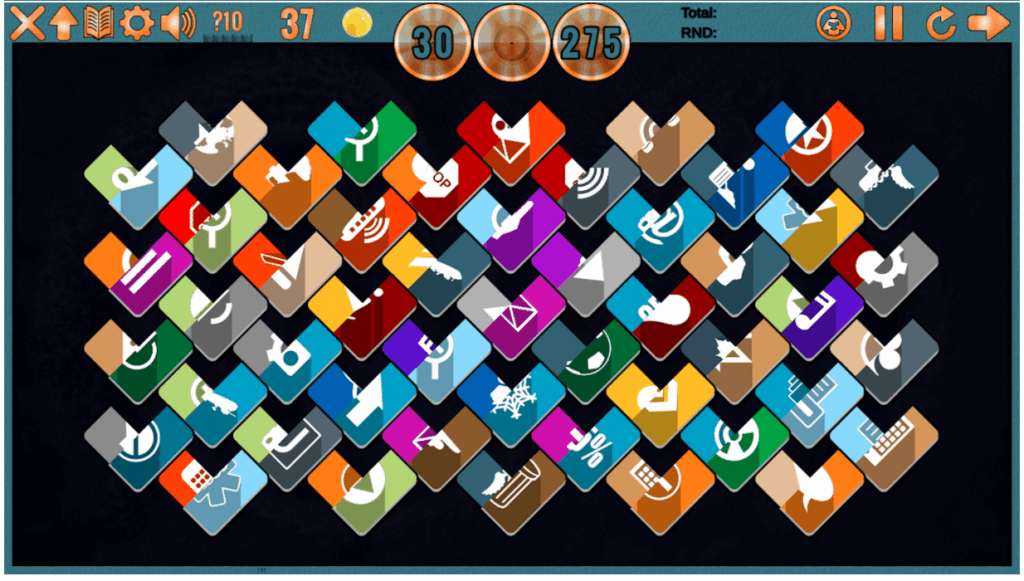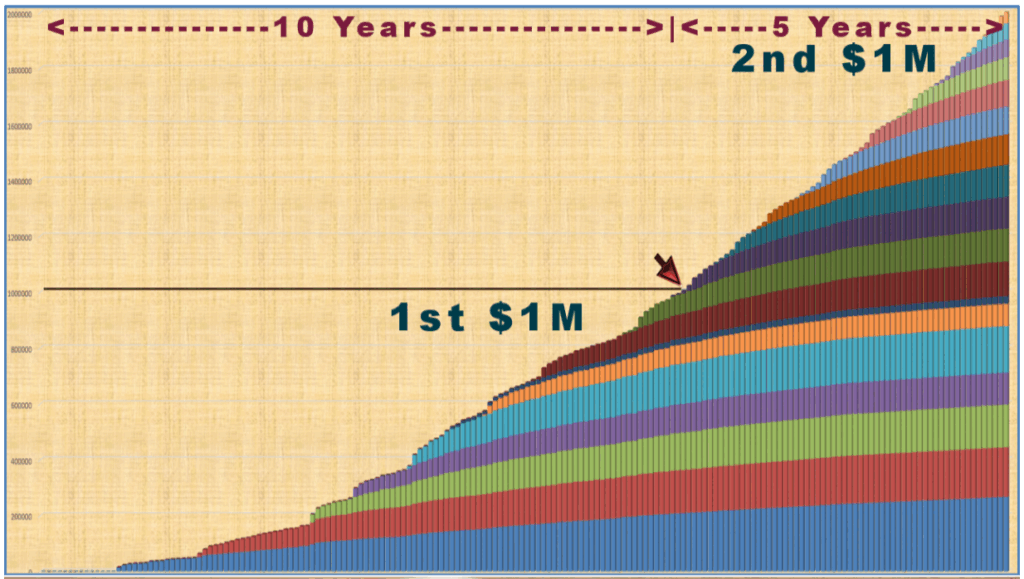Joe Cassavaugh’s story stands out as a unique and unconventional solo developer journey. After years working behind the scenes at iWin on successful casual titles like Mah Jong Quest and contributing to franchises like Jewel Quest, Cassavaugh struck out on his own in 2009. “My future wife turned to me and asked: ‘Can you do these games on your own?’ and I answered: ‘Not quite, but something close enough.’” That moment eventually led to the birth of Clutter, a now 18-game franchise that has quietly built a loyal following and defined its own subgenre within the hidden object space.
Rather than rely on traditional platforms or publishing routes, Cassavaugh focused on a specific audience: fans of casual puzzle games, particularly women over 40. “A little humble-brag here, I’ve done so well that ‘Clutter’ is now even considered its own genre,” he says. “There have been many direct copy-cats and other games influenced by Clutter!” By staying lean, avoiding creative bottlenecks and delivering consistently, Joe Cassavaugh (“The Joe in Puzzles by Joe!”) has grown Clutter into a sustainable solo business, earning over $200K annually and proving there’s still room for alternative paths to success in game development.
Why did you become a solo developer?
“From 2004-2009, I worked for a company called iWin and it was at the height of the Casual PC Download Market boom. I Co-Created the Mah Jong Quest trilogy for them and was also involved in their Jewel Quest franchise. Those games made upwards of $40 Million for the company and of course, I only got a very small piece of that.”
“In 2009, I created a game called Diamonds: A Peter Zelle Mystery and it was half green-lit. We were about half-done that game when iWin stopped all in-house development and my project was cancelled.”
“My future-wife turned to me and asked: ‘Can you do the game on your own?’
and I answered: ‘Not quite, but something close enough.’
And that’s when I decided to become a solo developer.”
Can you talk about your specific target group of gamers and the games you create for them?
“In 2005, the Casual PC Market boomed when a lot of people figured out that if you made the right kind of games that women over 40 loved to play them. Big Fish Games, iWin, Game House (Real Arcade) and a bunch of other ‘Casual Portals’ sprung up to fill this need. Three-Ball Match, Mah Jong, and Solitaire games dominated the Top 10 at this time. Late in 2005, the first Mystery Case Files was released and over the next couple of years HOPAs (Hidden Object/Partial Adventure Games) started dominating the market.”

“All games were selling at a $20 price point, and at this point, Big Fish Games cut all their prices by 50% except for the HOPAs. And the HOPAs (also known as HOGs (Hidden Object Games)) were hugely popular and people treated them like movies. They would play a new one for 4-6 hours then move on to the next one. So, I decided to target this audience by making a Non-Verbal HOG (no HOPA component) that was replayable, that should appeal to the HOG fan without being a true HOG. And that’s what I did.”
What are the biggest advantages of working solo?
“The biggest advantage is that there are no arguments and absolutely nothing to slow you down. As long as you have everything you need in your toolset, being a solo-dev means you’re at least 3-5 times faster than any small-group fighting ‘death by committee’ at every step of the way.”
And the biggest pitfalls?
“Any pitfall can be mitigated in a number of ways. The biggest pitfall is isolation, but that can be mitigated by being involved in a local game-dev community. That’s what I did. So much so that a monthly meet-up I joined in 2011 became known as ‘Joe’s Meetup’ by 2014, because I was the one who always showed-up! I also used the local Game-Dev community to learn things I wouldn’t learn otherwise. It’s how I knew about Steam, even though that wasn’t my target audience. And it’s why I finally switched to Unity a few years ago.”

What’s your creative process?
“This is a tough one. I believe in just playing in the ‘Design Space’ while constantly trying to expand what is allowed within that Design Space. I took something that already existed (A ‘HOG PILE’ mechanic that was sometimes used as almost a mini-game in the HOPAS) and decided it was worthy of exploring on its own game. The basic idea was just a Match-2 of Photo-Realistic Objects, 50 matches with 50 objects in the background that didn’t match. I wrote the prototype in a weekend and knew it was a ‘good enough’ mechanic to explore.”
“I have a video called ‘The Knob Theory of Game Design’ that is an hour long that answers this question better than I can in this small space.”
“I also have about 1000+ people from my target audience that help me ‘beta-test’. Really just an early release now. And I definitely used to watch people play the earlier variations and/or my main-menu interface because there is a lot of value in that. However, I just released my 18th game and basically when I start a new game, I just copy/clone the last one I did into a new area and start adding variations. A little ‘humble-brag’ here. I’ve done this so well that ‘Clutter’ is now considered a Sub-Genre (or even its own Genre) of the HOG. There have been many direct copy-cats and other games influenced by Clutter!”
How do you stay motivated through (years of) development?
“It’s changed over the years. I’m definitely motivated by money, and earning $200K per year these past 5 years is a great motivator. But so is connecting with my customers and way, way back just making a game that I know will be seen by 100,000+ eyeballs has always been a great motivator. But, I thought I would make 3 games in the Clutter series and move on, but I’ve always had my eye on building a SUSTAINABLE business, so it became clear that I needed to feed the ‘Franchise Effect’ to really be sustainable.”

“Another thing that motivates me is ‘doing something different’ with each game and just having “fun” with the story side of things. Also learning new things, and pulling off new tricks within the Genre I created is pretty motivating as well. I was close to burning out when I finally switched to Unity for Clutter 1000. My 8th game and one in which I decided to do it totally with no text, no Story text and no Help text either. Switching to Unity let me do new things that my older dev environment wouldn’t let me. That energized me as well.”
Will you ever work in a team again or is it only solo for you?
“I’ve partnered with different distributors to accomplish some things I couldn’t do easily on my own, but I doubt I’ll ever work for/with someone else ever again. I occasionally have other people do specific tasks for me, like gathering 300 quotes to use in the next game, but it’s very directed and only done to save me time.”
How did you initially get the idea for your series of Clutter games?
“I’ve answered most of this above, but I’ll add that ‘proving people wrong’ is also a great motivator. For years at iWin, I got sick of pitching games and having them turned down by ‘the committee’. I believe that most ideas are a dime a dozen, and that the proof of a good game is in the execution. When you’re lost in the Jungle, it’s not the Elephant that kills you, it’s the thousand Mosquitoes. Those thousand choices you make while you’re creating the game. I started saying to my bosses: ‘You pick the Genre, and I’ll design/code/implement a game that will sell.’ When I decided to go on my own, I had to put my own money where my mouth was! So, I picked the most popular Genre to create a game for, within my limits. Then I just started creating.”
“After the first game, I became very good at seeing ‘variations of variations’ and pleasing my audience. Each Clutter game is different and yet somehow the same as every other Clutter game. We haven’t even mentioned how weird the Clutter Stories have been over the years, and how I’ve definitely made my point that ‘Puzzle Games Don’t Need A Story’. At least not a conventional one, and maybe no story at all. Got a talk on that as well!”
What’s the biggest lesson you’ve learned in all the years that you’re working alone?
“So many here, but it may seem odd in how unspecific it is (and it’s the basis of a couple of my talks – most notably: ‘How to Succeed at Anything – If Oprah, Deepak & Tony were Game-Devs.’) and it’s this: ‘Everything You Do Is In Preparation For A Future Path That You Can’t Predict.’ I could never have predicted where my Clutter journey would take me!”
The toll on your mental health can be quite high for a solo developer. How do you deal with that?
“I don’t want to treat that casually, but because of my financial success there is no real issue here. I also treat Clutter like it’s a commodity. I’m grateful that everything lined-up to allow me to become the guy that created the Clutter Franchise, and that it has made my life very interesting. The Clutter-Games are not me (even though I share a lot of myself in the stories) and because of the financial success, I’m truly immune to criticism of them. It’s a love-it or hate-it mechanic that some people love and find really addicting, while others can’t understand why anyone plays this stupid game.”
“Also, I’m quite well-known in the Atlanta Game-Dev community and I think that handles any isolation, loneliness, acceptance issues that I might have developed if I weren’t involved with them.”
Get the Clutter games at Puzzles by Joe.

